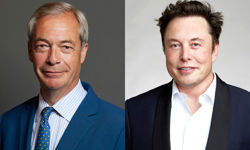According to the Newspaper Society: Titles covering the club’s two matches since the announcement have used innovative methods to express their concern about the ban, and report on the games.
The Herald used illustrations drawn by a local artist to report Saturday’s fixture against Plymouth Argyle action and The Sun refused to name the club in its coverage of that fixture, and a game against AFC Bournemouth on Tuesday.
Press Gazette reported that the Daily Echo in Bournemouth carried photos of the last meeting between to the two clubs, from the mid-1980s, alongside its written coverage.
Newspapers are refusing to buy photographs taken by the club’s official photographers and senior industry figures have rounded on the club, describing the ban as a “disgrace” and “a sad day for football”.
Ian Murray, Southern Daily Echo editor in chief, said: “The Daily Echo is deeply concerned about the club’s stance and, along with the rest of the British media, has chosen not to purchase the club’s photographs.
“This is not a petty commercial squabble, a simple matter of newspapers objecting to putting their hands in their pockets.
“On the contrary, the media’s backlash has resulted from the unacceptable breach of a fundamental principle of British life: the freedom of expression and of a free press.
“The Daily Echo is proud to report on our city’s great club and we have done so for more than a century. We are, and always have been, pro-Saints and passionate about the Club and its magnificent fans.
“But we must be able to do our job, unhindered by unwarranted attempts at editorial control.
“This is a sad day for football and we urge the Club to urgently respond to our request for a meeting to resolve this issue.”
Society of Editors director Bob Satchwell (pictured) told BBC Radio Solent: “Editors feel very strongly when their choice of pictures or choice of information is taken away from them and it breaks a relationship which goes back a long, long time since football started, where the media and football help each other.
“Both need audiences, the club needs its fans to go and watch and the newspapers and broadcasters need readers, listeners and viewers The two together work very well, the fans get different views of a match out of that and that’s where the issue lies really.
“Editors want to have a choice of the pictures coming out of any football match or any event for that matter, they want them to be different, they don’t want the same pictures as every other paper.
“What’s more, they want to make sure that the pictures are taken by an independent source and want a proper full report and pictures of the whole match from both sides.”










